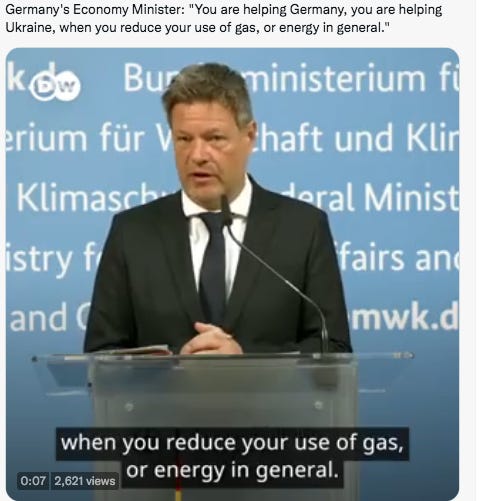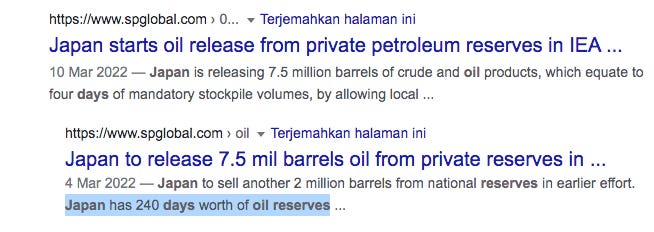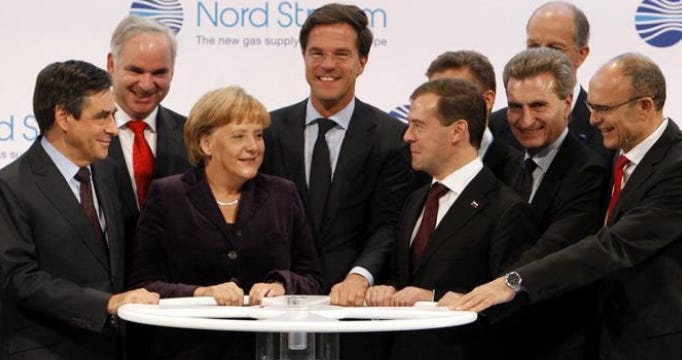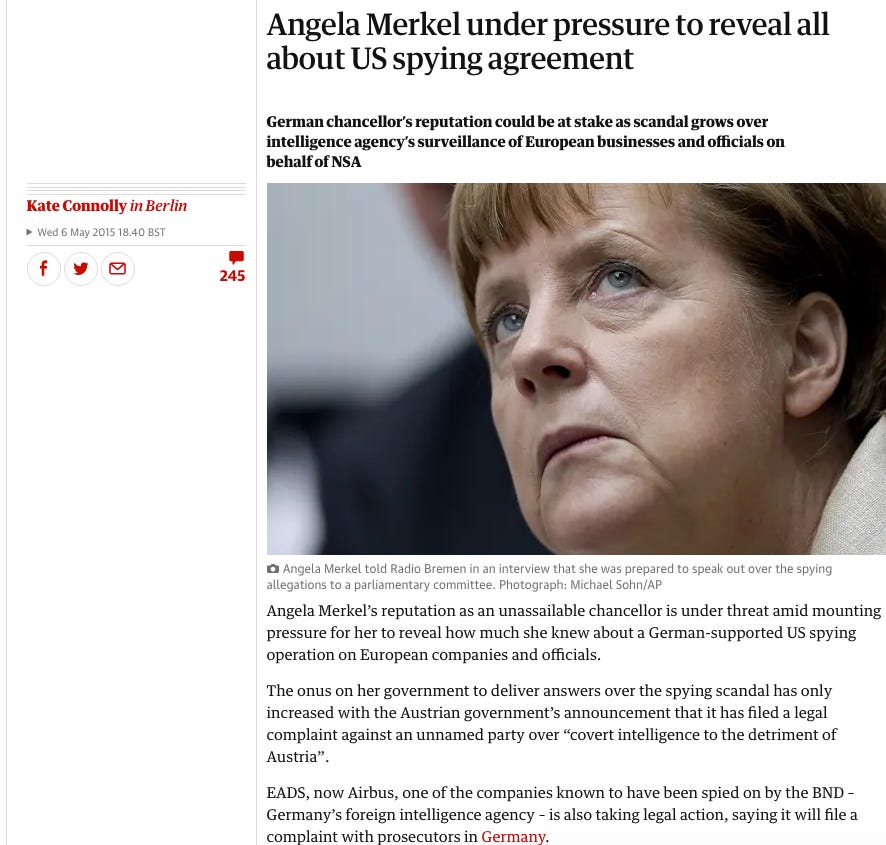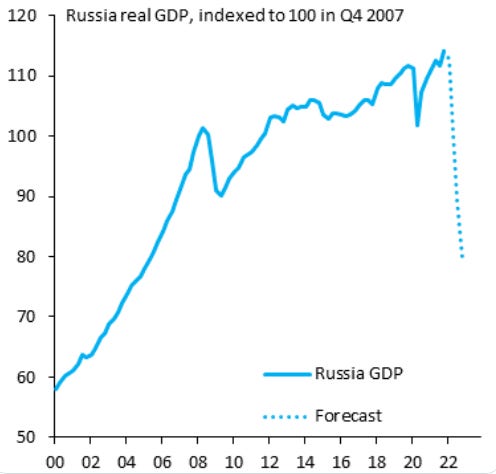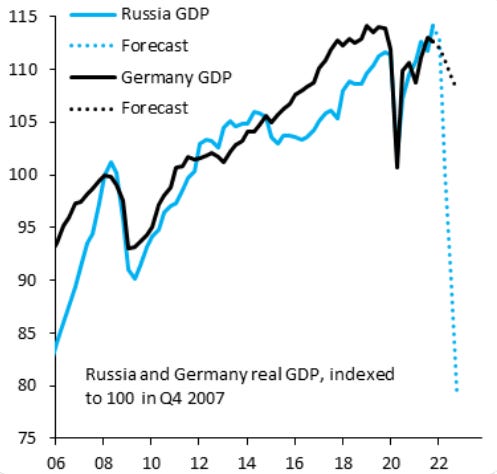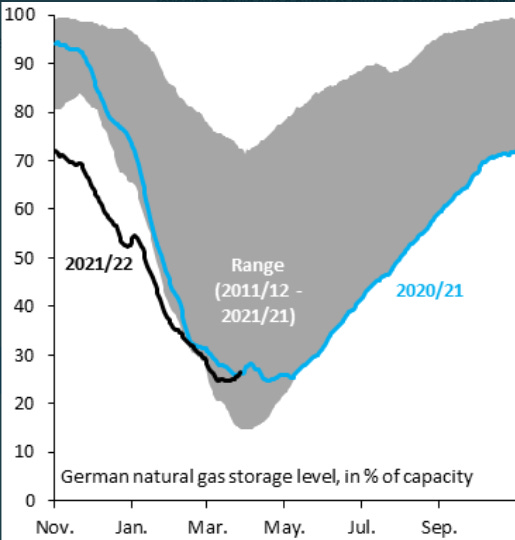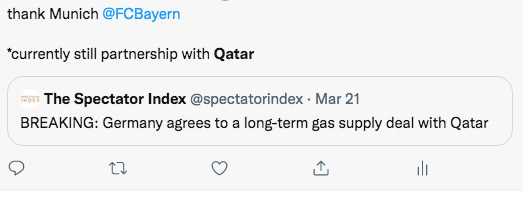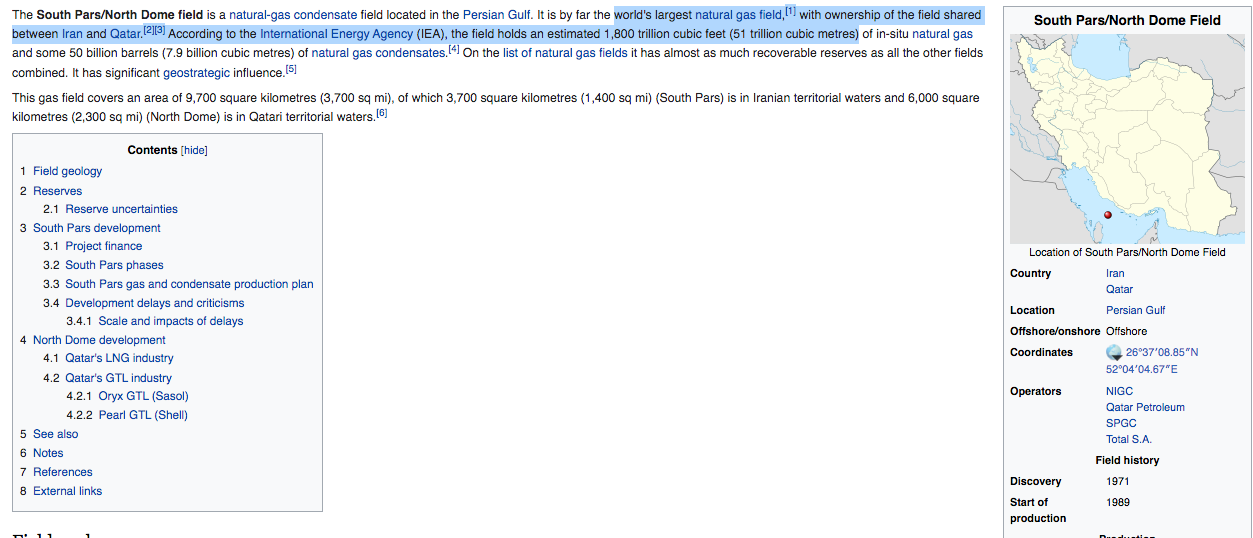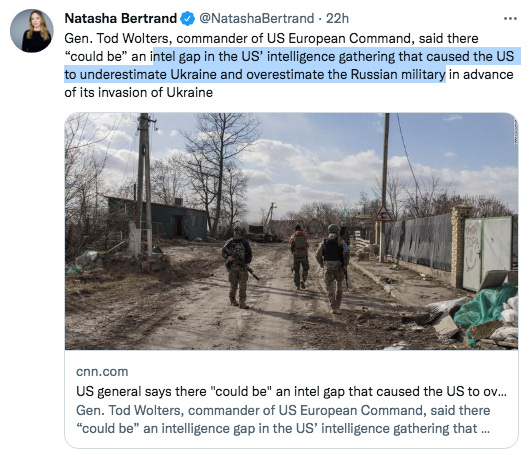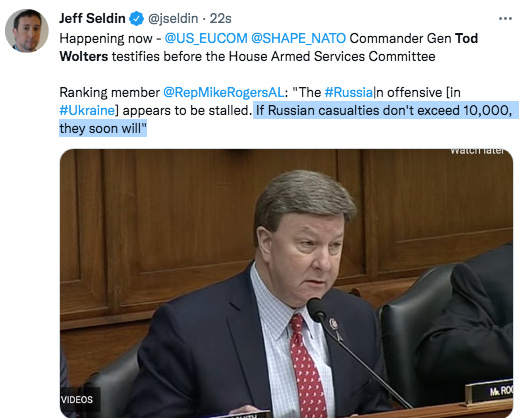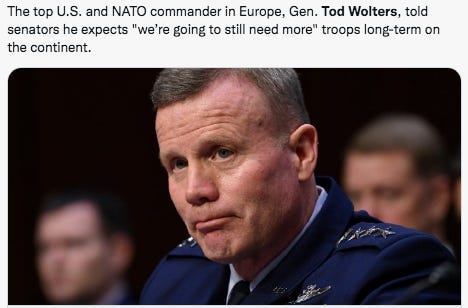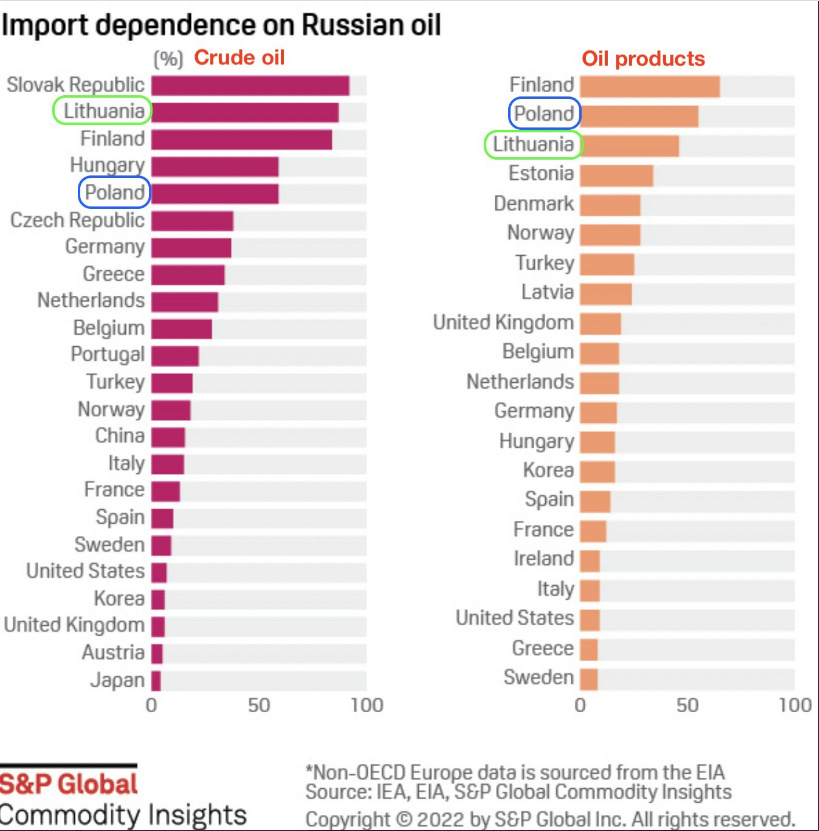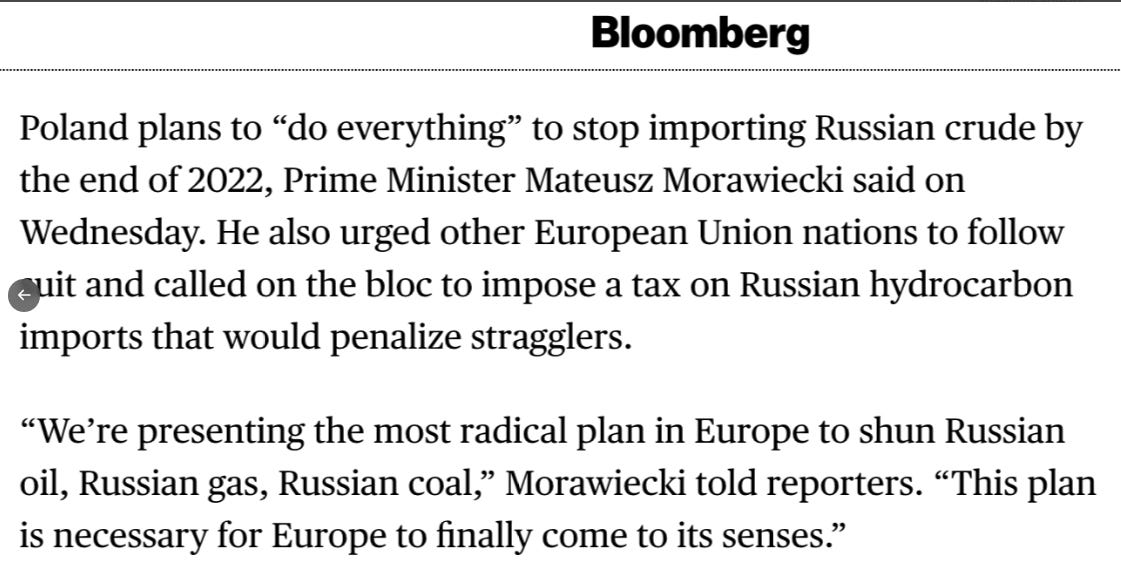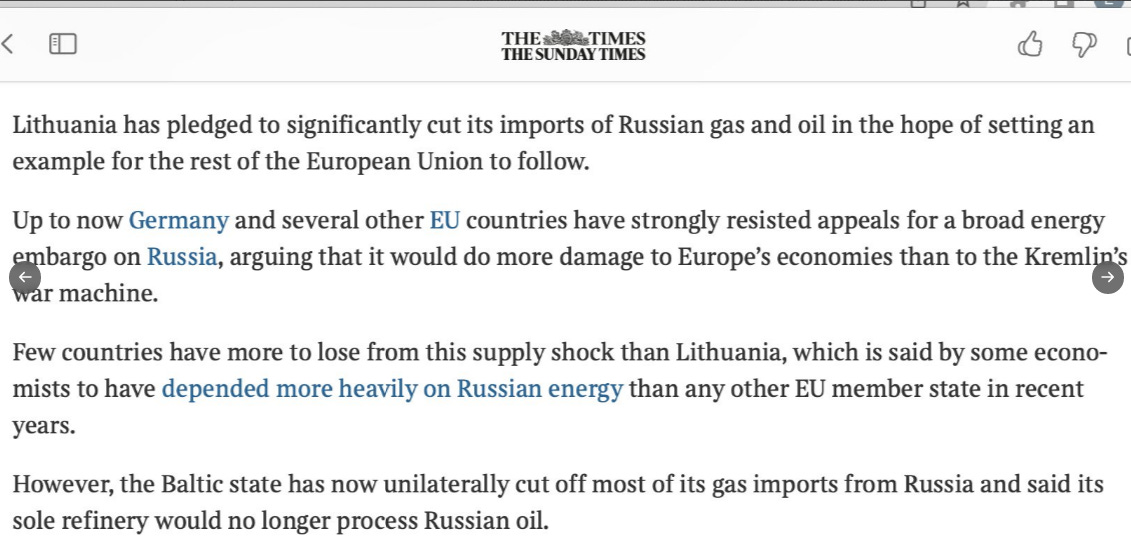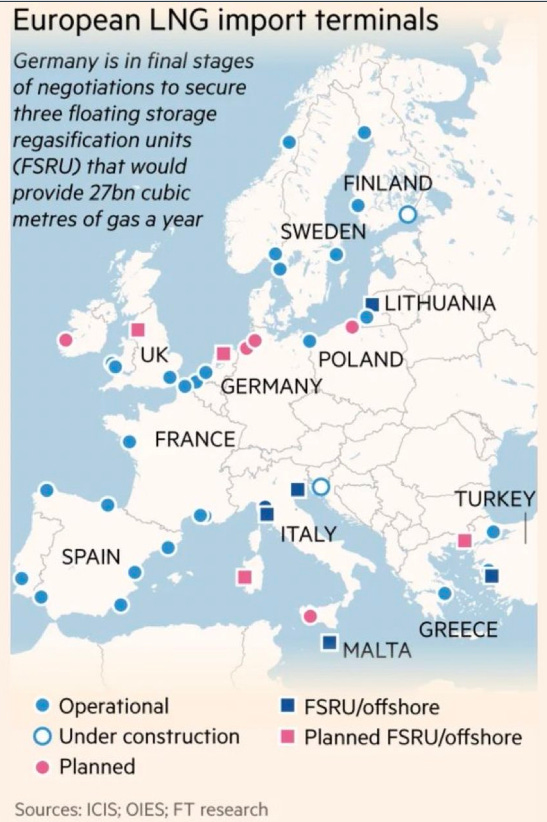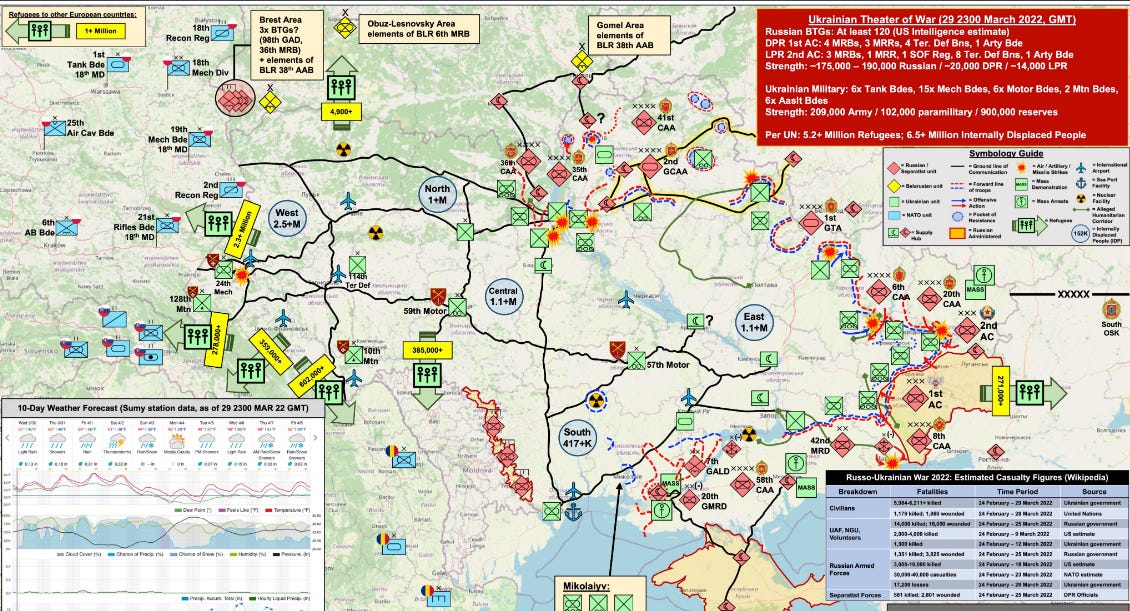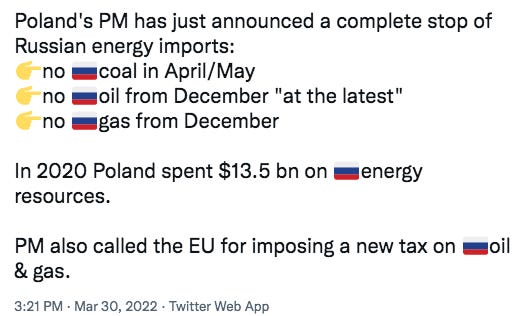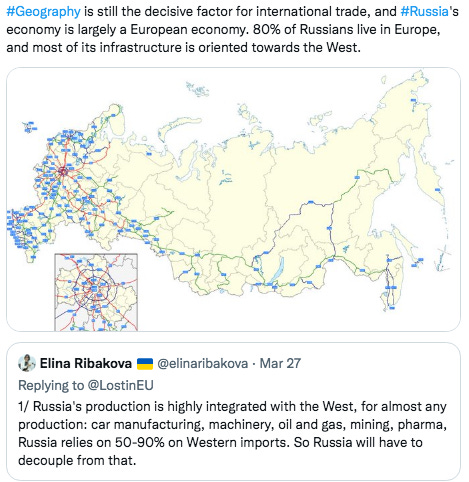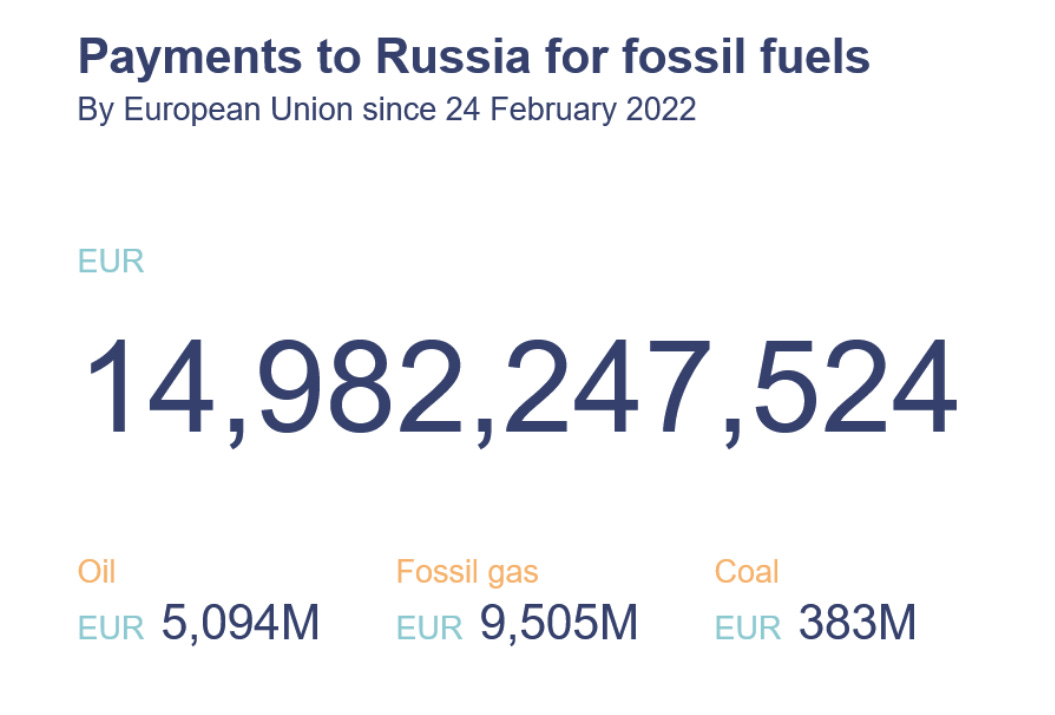How Berlin Will Hit Kremlin's Budget, and Help Ukraine?
Volodymyr Zelenskyy: “(Germany) are looking at the situation through the prism of the economy. They help out at times...The Germans are making a mistake today. They make mistakes often. The legacy of their relations with Russia shows this."
Russia had exactly one chance to use energy as a weapon against Germany, a country 82 million people, biggest market in Europe, and they've chosen to do it now. Despite all the justified complaints about Berlin moving too slowly amid Russia - Ukraine war (Day-34 now on March 30th, since February 24th, my live update in here), Germany will not find itself in this position again. That's historic and it will change European politics. I means: if Germany fulfilled a very high standard (to set a sanction for Russia), another countries will follow. Should.
Major shift in German energy security and defense is (maybe) same as revolutionary like Dutch and Japan painful on 70s, when Saudi embargo oil to all the West & ally (decree by King Faisal). Dutch radically using a bike, and currently to be leader of (using) bike (90-95% population). Japan have a (at least) 240+ days of oil reserve stock, compared only 10-15 days in decade 1970s.
Germany today was decided by a government led by a chancellor from the Social Democratic Party, which has traditionally supported Russia-friendly policies, with a foreign minister from the Green Party, which has roots in the pacifist movement & radical campaign to less consume energy, and a finance minister from the Free Democratic Party, long committed to very tight budgets. Many external observers had worried about what would become of Germany’s defense & energy security policy after Angela Merkel’s conservative party, which has long styled itself as the guardian of the German military and scarcity access on energy, was voted out of office in 2021. (for tricky/flip-flop energy security in Germany, can read here)
Merkel herself attend on Nord Stream 2 ceremony (with Medvedev on Russia side). Merkel herself sign a pact about “very tricky cooperation on surveillance” between Germany and the U.S. with (using) NSA-CIA building at Bad Aibling. But what actually real in the field and another fact?
With naming individual countries Scholz says that those demanding boycott of Russia oil, coal, gas haven‘t implemented one themselves. He rails against mathematical models of economists advocating in favor of boycott that have little to do with what‘s going on real world.
But, German embargo on Russian energy would obviously hurt Germany, and it would hurt Russia MUCH MORE, hindering Putin's ability to wage war. Our current forecast is for Russian GDP to fall -30% by end-2022. An embargo would see an even bigger fall, possibly in excess of -40%. Germany's debate over a Russian energy embargo got hung up on whether models used are right or wrong. That misses the point! Any model - ANY MODEL - shows that an embargo will hit Russia far worse than Germany. That's the only point that matters. Germany's storage levels of natural gas are low, but they're no longer abnormally low versus the usual seasonal pattern. This storage - with some rationing - could give a buffer of multiple months in the event of a "sudden stop" in the supply of Russian gas.
Like Biden said, gradually, massive sanction really painful to Putin. The sanctions campaign has been impressive. The US and Europe have shown remarkable solidarity and resolve. But now is not the time to rest on our laurels. Ukrainians remain under heavy fire. The West needs to step up the pressure, and at least the 4th strongest economy in the world (Germany), only 850 km from Lviv (Dresden, most eastern city in Germany(), must more contributed to help Ukraine, and means ended this war with a way weakening Putin on budget side.
Effect of some of the sanctions is beginning to subside. Particularly with Russia continuing to receive FX (foreign exchange) and budget inflows from commodities. Sanctions attempted two key things: (1.) Target specific persons and/or their businesses in order to punish them for the roles they play in Putin’s system, and (2.) Orchestrate a sovereign default and push the Ruble into the abyss, but as a one-off thing. If the West (+ Singapore, South Korea, Taiwan, Australia, NZ, Japan) doesn’t sharpen the sanctions, much of the effect might fade away. But for especially among European countries, the key factor is (decision from) Berlin.
No apparent pressure from the oil ‘self sanctioning’ saga. The longer this continues, the easier for Russia to rebuild the hard currency reserves it has lost access to. "Self-sanctioning" has not devastated Russia's oil, gas, mines sales. Russian oil, gas, mines is still finding buyers. On other side, #Russia's central bank has probably found a workaround that allows it to cushion Western #sanctions, with the help of high export revenues from oil and gas. Without an embargo, the West will always have to leave holes in its sanctions, which then enable these schemes. Russia's domestic banking system is gradually stabilizing (at least now day-34 / day-35 Russia - Ukraine war). Maybe more bleeding in Russia budget if this war really too long day, even year(s). Severe bank runs triggered by the war and sanctions appear to have moderated.
To truly curb Russia's oil sales, Europe will need to reduce its own imports, and the US & EU will need to launch a global secondary sanctions campaign. And Germany, very massive consumpt oil, gas, mining from Russia, should to be a leader to good example on (massive) sanction through to Russia. But Germany isnt the highest percentage very dependent with Russia supply. For crude oil is Slovakia, and for oil products is Finland. On defense-security, Berlin's position on arms deliveries was unlikely to change until it did.
Lithuania & Poland are two of world's most dependent countries on Russian oil. They also share borders with Russia and know Russia better than most. Lithuania border on several checkpoint like Nida, Panemune, Kybartai. Poland border share with Russia in Warmian-Masurian, Vistula Spit, and Nowa Karczma. Lithuania & Poland have pledged to end dependence on Russian oil. It's time for Germany, richer per capita than Lithuania and Poland, to more aggressive sanction and no longer consume Russia energy and minings. It’s time too for the rest of Europe to stand up and follow suit.
Berlin's position on Nord Stream 2 was unlikely to shift until it did. This government's position on 2% defence spending (or EUR 100 billion) was unlikely to shift until it did. Position Defense Minister Lambrecht to ask Inter-Continental Nuclear Ballistic Missile (from US), also ask a squadrons F-35s (also from US) and new set up anti-missiles shield-likely Iron Dome (from Israel) was unlikely until it did. It’s very ugly when Germany (like U.S.) oppose to “no fly zone” in entirely Ukraine skies because too afraid declare directly “into to the war” facing Russia, but Germany try to built “a new Iron Dome” like Israel (& Azerbaijan, the Israel partner who order Iron Dome like Israel). Time isn't moving at normal speed right now. All in all, the energy sanctions debate reminds me of every other major foreign policy decision over the last couple of months. Instead of getting ahead of things for once, Berlin waits until pressure becomes overwhelming, then moves and celebrates itself.
Germany has neglected to keep up its army. Being protected by other EU countries Germany has been able to invest not on arms but on economic growth. Its dependence on Russian gas and oil has weakened the security of all Europe. Shouldn't now be the payback time. Germany in the last century had an unfortunate history military wise, so I don’t blame them (Scholz from SPD; Anna Baerbock & Cem Ozdemir from Green) for being pacifist. Merkel thought she could tame Putin (& actually Hu Jintao —-then — Xi Jinping) by drawing him into the club of civilised nations. It didn’t work, but easy to be wise after the event.
Today, no country in the West should feel more responsibility for Ukraine's fate and security than Germany. Consequently, Germany should do more than any other country to help Ukraine. Of course, we did some good as well, but we clearly weakened Ukraine's security. It is painful to see that other countries are stepping up more than Germany at this historic time. I hope that we can still change course.
(comparison for Germany, this is situation in Poland, a country 38 million people)
This (Russia-Ukraine) war will most likely not be higher than maybe $20 million per day. Maybe $50 million per day, i.e. mostly above-budget pay for soldiers, diesel, material, logistics. U.S. believes any movement of Russian forces from around Kyiv is a 'redeployment, not a withdrawal', world should be prepared for continued major offensives on other areas in Ukraine, U.S. official says. So, Russia actually on painful budget to spending “redeployment”, if really happened on 5 days from now, if Russia really geared-up, aggressive again to shelling every inch of Ukraine. Because more and more Ruble losing again.
How much does the #EU spend for Russian energy per day? Estimates the answer using at least 22 day, based on publicly available data: Since the start of the war on average:
€ 230 million oil & oil products per day;
€ 430 million for gas per day;
€ 17 million for coal per day
Russia is trying to maximise oil and gas revenues over the next couple of decades to prepare its economy for the inevitable moment when Europe is no longer dependent on fossil fuels. Dozens of German parliamentarians, foreign policy experts, professors and intellectuals just called for an immediate end to Russian oil and gas imports. Much will depend on the trajectory of the war itself but momentum now rests with those arguing for tougher sanctions.
Whether it's the pandemic or reactions to Russia's war in Ukraine, it's pretty incredible how important the weather continues to be. We can go to space or talk to someone on the other end of earth but we still have to fear winter. If winter really hit, of course “an argument to begging more gas” is spreading massive in entirely Europe.
I believe that German officials (Scholz, Baerbock, Ozdemir, Lindner, Habeck) believe this but the thing about German positions that they see as "unlikely to change" is that they do change when there's enough Russian aggression and allied pressure. If this war gets even worse, Berlin's position will be hard to sustain. With Germany seemingly incapable of making decisions for itself unless faced with overwhelming foreign pressure, we're now looking at a scenario of Moscow, rather than Berlin, deciding that Germany will no longer import Russian energies and mining products.





